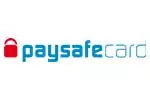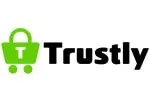Gambling in Sweden has been legal for almost a century but was monopolized by the state. All gambling activities are conducted by the state-owned Svenska Spel. It was established in 1997 when the two major lotteries Svenska Penninglotteriet and Tipstjanst merged into one united company.
Since then, Svenska Spel has held a full monopoly over gambling within the territory of Sweden. Additionally, horse betting is also run by a government-controlled organization called Aktiebolaget Trav och Galopp (ATG). All income from casinos, lotteries, and other gambling activities goes to the State Treasury and is used for socially beneficial projects. The main laws that regulate the gambling industry in Sweden are the Lotteries Act from 1994 and the Casinos Act from 1999.
Svenska Spel manages four land-based casinos – in Stockholm, Gothenburg, Malmö, and Sundsvall. There are also numerous small restaurant casinos, which offer card games, roulette, and dices, as a form of entertainment for its customers. In addition, you can often find various slot machines and blackjack tables on ferries, or in bars and pubs.
These are a common sight and provide a similar experience for people who would rather not go to a real casino. Swedes can partake in gambling events and activities, such as bingo, lotteries, and sports or horse betting as long as they are 18, but if they would like to enter a real casino, they have to be at least 20 years old.
The state of monopoly would have continued to exist if it wasn’t for the European Union and some of the member states, which pressured Sweden to make changes to its legislation and open its market for international investors.
In January 2019, the new Gambling Act entered into force and allowed Swedish and foreign operators to conduct gambling activities under the condition of having a valid license issued by the Swedish Gambling Authority. Now Swedes can gamble in casinos based outside of Sweden and the winnings they make are not subject to taxes. After this major step, the gambling industry, and especially online casinos, have been flourishing.
Regulation and Licensing
The main regulatory authorities in Sweden include the Swedish Gambling Authority, Finansinspektionen (Financial Supervisory Authority), the Swedish Consumer Agency, and the Public Health Agency.
The Swedish Gambling Authority is controlled by the Ministry of Finance. It is operated by a board of members appointed by the Government. It has many responsibilities including issuing permits and licenses, monitoring and controlling gambling activities, and ensuring a fair and legal gambling market.
The SGA is divided into three departments – the Operational Department, the Department of Administrative and Legal Affairs and the Communication Department. The Operational Department is responsible for licensing casinos and restaurant casinos, as well as supervising various casino games, sports and horse betting, lotteries, and slot machines, in order to ensure that they are legally operating and to prevent any illegal gambling.
The Financial Supervisory Authority controls all financial regulations in Sweden. It’s responsible for closely monitoring financial markets and issuing a report to the Government in case it oversees any instability that may negatively impact the Swedish financial system. It produces regulations regarding financial activities and observes that operators work in accordance with them.
The Swedish Consumer Agency is the one individuals can contact in case they need thorough information and legal advice on opening casinos or conducting gambling activities. The Consumer Agency can also resolve complaints from customers who have lost money on bets or gaming machines.
The Public Health Agency has a very important task to propose and manage different programs intended for those who need help with problem gambling. Problem gambling affects around 100,000 people on a yearly basis, according to statistics. The Agency spreads information on excessive gambling in order to raise awareness of this troublesome condition.
Anyone who would like to run a gambling activity will have to obtain a license from the Swedish Gambling Authority. These licenses are issued for a specified period of time, and may be valid for a maximum period of 5 years. The different kinds of licenses require different application fees. For example, a license for commercial online gambling and a license for betting cost SEK400,000 each. A license for State Lottery or lottery for public interest purposes may cost between SEK5,000 and SEK150,000. All licensed operators must also pay an annual supervisory fee, which depends on their gross gaming revenue. These fees vary between SEK30,000 and SEK500,000.
Players’ Security
The Swedish Government has created the Gambling Authority in order to regulate the gambling market and to minimize the risk of fraud and illegal activities. Swedes must always choose casinos that are licensed by the Swedish Gambling Authority. If not, they must at least work under a license issued by a well-known and reliable regulator, such as the Malta Gaming Authority, the Alderney Gambling Control Commission, or the Gibraltar Gambling Commission.
Another important thing that Swedes should look out for, is information regarding the security and safety measures that the casino employs. All operators must employ at least 128-bit SSL technology, or even better, 256-bit systems. This ensures safe transactions as sensitive information is encrypted and chances of fraud are minimized. Furthermore, separate servers and multi-level authentication can offer additional assurance that customers’ personal information is safely managed.
Players should also check if the casino goes under regular tests and audits as these can give some insight into the RTP rates and the implementation of RNG technology. RTP stands for Return to Player, and these rates indicate what part of the amount that players bet, comes back to them in the form of winnings.
RNG on the other hand, or Random Number Generator, is a mandatory technology, which ensures that all outcomes in the games are random and are not controlled by the casino. This guarantees that players can only rely on their luck and the outcomes of the games cannot be predicted or changed in the casino’s favor.
All casinos must also have a responsible gambling policy. There must be a range of practices that can be implemented in order to prevent problem gambling. These include setting a maximum amount of money that players can lose and deposit per day, week, or month. Casinos are obliged to let players self-exclude if they decide that the situation is getting out of hand. Players should also have the opportunity to take self-assessment tests and set a time limit that they can spend in the casino.
 Microgaming
Microgaming NetEnt
NetEnt Play'n GO
Play'n GO Evolution Gaming
Evolution Gaming Yggdrasil
Yggdrasil Credit Card Transactions
Credit Card Transactions ecoPayz
ecoPayz Neteller
Neteller Paysafecard
Paysafecard Nordea
Nordea Trustly
Trustly Yako Casino
Yako Casino 888casino
888casino SlotV Casino
SlotV Casino Fun Casino
Fun Casino LeoVegas Casino
LeoVegas Casino PlayOJO Casino
PlayOJO Casino Betsson Casino
Betsson Casino Casino Joy
Casino Joy Videoslots Casino
Videoslots Casino Casumo Casino
Casumo Casino